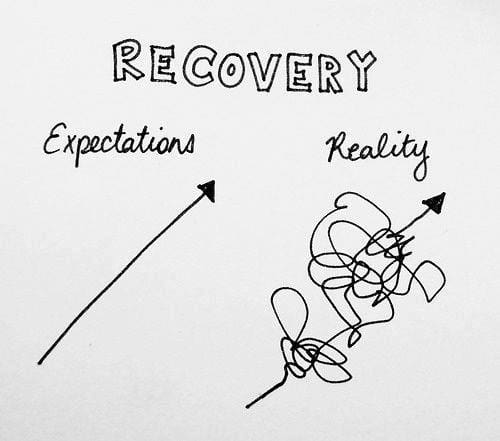
In the past few years, using a bullet journal in lieu of a planner has boomed in popularity, particularly among adolescents. This is partly due to social media sites such as Instagram, tumblr, and YouTube (often found under the #bujo hashtag), where people can turn to for ideas and where to start, if not an aesthetic to hopefully achieve. They’re colorful, creative, and an opportunity for people to have their journal truly be a reflection of them. Continue reading Bullet Journaling Beyond Organization








 Recovery from mental illness is not always a straight line in an upward trajectory. In fact, the path to recovery is almost never straight and easy. There isn’t necessarily even a discernible end goal—a point that you’ll reach when you can say, “I’m done recovering.”
Recovery from mental illness is not always a straight line in an upward trajectory. In fact, the path to recovery is almost never straight and easy. There isn’t necessarily even a discernible end goal—a point that you’ll reach when you can say, “I’m done recovering.”